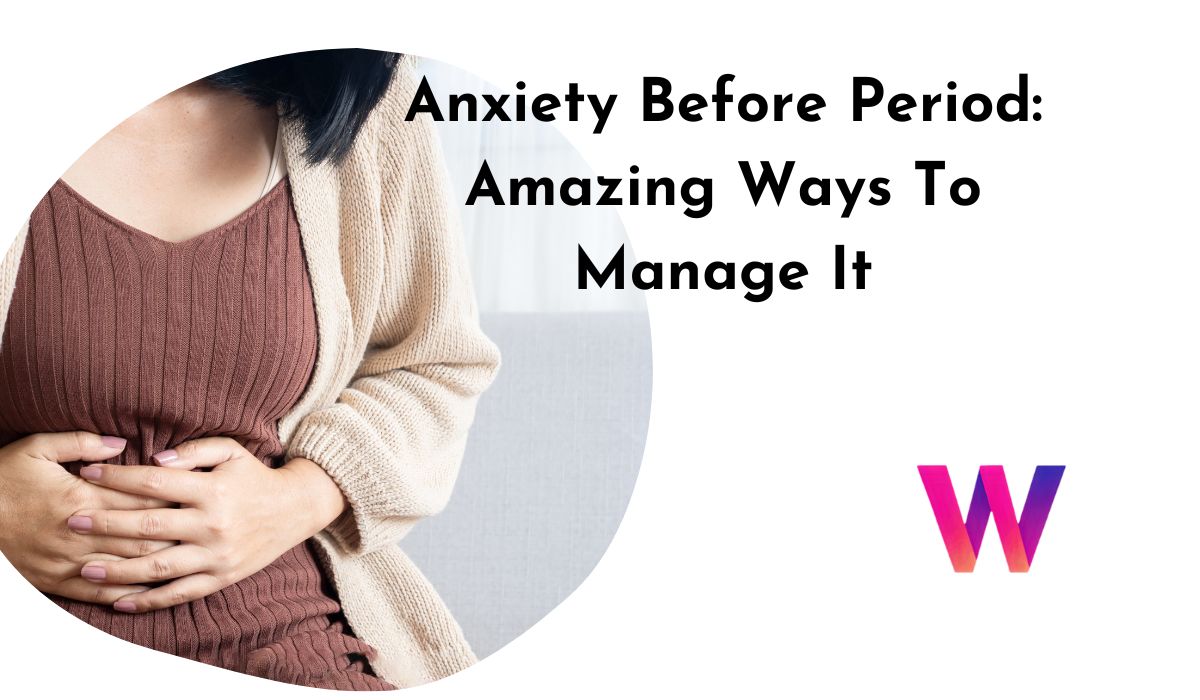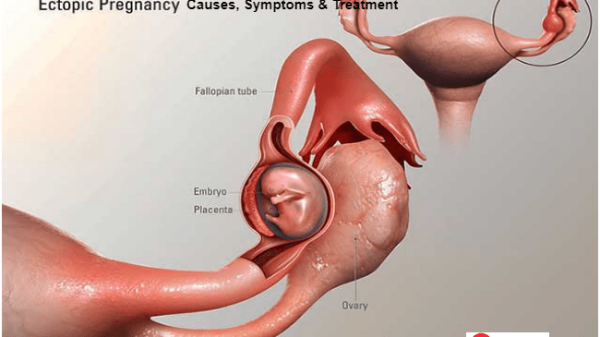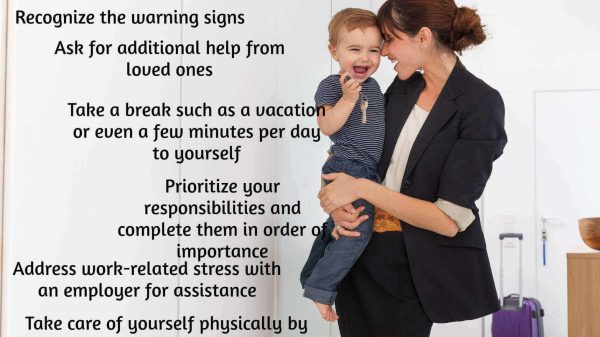Anxiety is a common emotion that everyone experiences from time to time. But for some people, anxiety can become more intense and frequent before their period. This can interfere with their daily life and affect their mood, relationships, work, and health.
If you are one of those people who struggle with anxiety before your period, you are not alone. Anxiety is a hallmark symptom of premenstrual syndrome (PMS), which affects 30-80% of people who have periods. In some cases, anxiety can be a sign of a more severe condition called premenstrual dysphoric disorder (PMDD), which affects up to 5% of people who menstruate.
In this article, we will explain why anxiety happens before your period and what you can do to manage it. We will also share some amazing tips and tricks to help you cope with anxiety and feel more calm and relaxed during your premenstrual phase.
Table of Contents
What causes anxiety before your period?
Anxiety before your period can be caused by hormonal changes that occur during the luteal phase of your menstrual cycle. The luteal phase begins after ovulation and ends when you get your period — typically lasting about 2 weeks.
During this phase, your body prepares for pregnancy by increasing the production of estrogen and progesterone, two reproductive hormones that regulate your mood, behavior, and brain function. But if an egg doesn’t implant in your uterus, those hormone levels drop sharply and you get your period.
This hormonal rollercoaster can affect the levels of neurotransmitters in your brain, such as serotonin and dopamine, which are responsible for mood regulation, motivation, pleasure, and reward. Low levels of these chemicals can lead to psychological symptoms, such as anxiety, depression, irritability, mood swings, and loss of interest in activities or relationships.
Some people may be more sensitive to hormonal fluctuations than others, possibly due to genetics, environmental factors, or personal or family history of mental health disorders. If you have a preexisting condition, such as generalized anxiety disorder or depression, you may experience premenstrual exacerbation (PME), which means that your symptoms worsen during the luteal phase of your cycle.
How to tell if you have PMS or PMDD?
PMS is a combination of emotional and physical symptoms that occur during the luteal phase of your cycle. The severity of PMS symptoms can vary from person to person. Some people experience no signs of PMS, while others have mild-to-moderate symptoms that are manageable with lifestyle changes or over-the-counter medications.
Some common psychological symptoms of PMS include:
- Excessive worrying
- Nervousness
- Tension
- Irritability
- Fatigue
- Changes in appetite
- Mood swings
- Loss of interest in sex
- Difficulties with memory or concentration
- Sleeping too much or too little
Some common physical symptoms of PMS include:
- Swollen and tender breasts
- Constipation or diarrhea
- Cramping
- Bloating
- Headaches
- Backaches
- A lower tolerance for light or noise
PMDD is a mood disorder that causes similar but more severe symptoms than PMS. PMDD affects up to 5% of people who menstruate and can interfere with their daily functioning and quality of life. People who have PMDD often have a personal or family history of anxiety or depression.
Some common psychological symptoms of PMDD include:
- Feelings of irritability or anger that often affect your relationships
- Feelings of sadness, hopelessness, or despair
- Feelings of tension or anxiety
- Feeling on edge or keyed up
- Mood swings or frequent crying
- Decreased interest in activities or relationships
- Trouble thinking or focusing
- Tiredness or low energy
- Food cravings or binge eating
- Trouble sleeping
- Feeling out of control
Some common physical symptoms of PMDD include:
- Cramps
- Bloating
- Breast tenderness
- Headaches
- Joint or muscle pain
The main difference between PMS and PMDD is the intensity and impact of the symptoms. If your symptoms are mild-to-moderate and do not interfere with your daily life, you may have PMS. If your symptoms are severe and affect your ability to work, study, socialize, or take care of yourself or others, you may have PMDD.
The best way to tell if you have PMS or PMDD is to keep track of your symptoms for at least two menstrual cycles using a diary, an app, or a chart. Note down when your symptoms start and end, how severe they are, how they affect your life, and what helps you cope with them.
If you notice a pattern of symptoms that occur during the luteal phase of your cycle and disappear or improve after your period, you may have PMS or PMDD. You can use this information to talk to your healthcare provider or gynecologist and get a proper diagnosis and treatment.
How to treat anxiety before period?
There are different ways to treat anxiety before your period, depending on the severity of your symptoms and the underlying cause. Some people may benefit from lifestyle changes, such as exercise, diet, stress management, or relaxation techniques. Others may need medication, such as birth control pills, antidepressants, or anti-anxiety drugs. Some people may also find therapy, such as cognitive-behavioral therapy (CBT), helpful to cope with negative thoughts and emotions.
The best treatment for you will depend on your personal preferences, medical history, and overall health. You should consult with your healthcare provider or gynecologist before starting any treatment and follow their recommendations.
Here are some general tips on how to treat anxiety before period:
- Exercise regularly: Physical activity can help reduce stress, improve mood, balance hormones, and relieve physical symptoms of PMS or PMDD. Aim for at least 30 minutes of moderate exercise most days of the week, such as walking, jogging, cycling, swimming, or dancing. You can also try yoga, pilates, or tai chi for a more gentle and relaxing workout.
- Eat a balanced diet: What you eat can affect your mood and hormones. Try to eat a balanced diet that includes plenty of fruits, vegetables, whole grains, lean protein, healthy fats, and water. Avoid or limit foods that can worsen your symptoms, such as caffeine, alcohol, sugar, salt, processed foods, and fried foods.
- Manage stress: Stress can trigger or worsen anxiety before your period. Try to identify and avoid or reduce the sources of stress in your life, such as work, school, family, or relationships. You can also practice stress management techniques, such as breathing exercises, meditation, mindfulness, journaling, or listening to music.
- Relax: Relaxation can help you calm your mind and body and cope with anxiety before your period. You can try different relaxation methods, such as progressive muscle relaxation (PMR), guided imagery, aromatherapy, massage, acupuncture, or hypnosis. You can also do something that makes you happy and relaxed, such as reading a book, watching a movie, taking a bath, or spending time with friends or pets.
- Get enough sleep: Sleep is essential for your mental and physical health. Lack of sleep can make you more irritable, anxious, depressed, and sensitive to pain. Try to get at least 7-9 hours of quality sleep every night. To improve your sleep hygiene, follow a regular bedtime routine, avoid caffeine and alcohol before bed, limit screen time at night, keep your bedroom dark and quiet, and use a comfortable mattress and pillow.
- Seek support: Anxiety before your period can make you feel isolated and lonely. You don’t have to deal with it alone. You can seek support from your family members, friends, partner, or other people who understand what you are going through. You can also join a support group, online forum, or chat room where you can share your feelings and experiences with others who have PMS or PMDD.
- Talk to a professional: If your anxiety before your period is severe, persistent, or interfering with your daily life, you may benefit from talking to a professional therapist, counselor, or psychologist. They can help you understand the causes of your anxiety, challenge negative thoughts and beliefs, develop coping skills, and improve your self-esteem and confidence. They can also refer you to other specialists if you need medication or other treatments.
How to prevent anxiety before your period?
While it may not be possible to completely prevent anxiety before your period, there are some things you can do to reduce the risk or severity of it. Here are some preventive measures you can take:
- Track your cycle: Knowing when your period is due can help you prepare for it mentally and physically. You can use a calendar, an app, or a chart to track your cycle and note down when you ovulate, when you experience PMS or PMDD symptoms, and when you get your period. This way, you can anticipate when you may feel more anxious and plan ahead accordingly.
- Maintain a healthy lifestyle: Following a healthy lifestyle can help balance your hormones, boost your mood, and improve your overall well-being. This includes exercising regularly, eating a balanced diet, managing stress, relaxing, getting enough sleep, and seeking support.
- Avoid triggers: Some factors can trigger or worsen anxiety before your period, such as caffeine, alcohol, nicotine, drugs, certain medications, or hormonal contraceptives. Try to avoid or limit these substances if they affect you negatively. You should also avoid situations that make you feel stressed, anxious, or angry if possible.
- Be prepared: Having some coping strategies ready can help you deal with anxiety before your period. You can make a list of things that help you calm down, such as breathing exercises, meditation, music, hobbies, or positive affirmations. You can also prepare some self-care items, such as herbal tea, chocolate, heating pads, or painkillers. You can also arrange some activities that make you happy and distracted, such as watching a comedy, playing a game, or going out with friends.
- Be kind to yourself: Anxiety before your period can make you feel bad about yourself and your abilities. You may also experience negative thoughts, such as “I’m worthless”, “I can’t do anything right”, or “I’m a burden to others”. Try to challenge these thoughts and replace them with more realistic and positive ones, such as “I’m doing the best I can”, “I have many strengths and talents”, or “I’m loved and appreciated”. You can also practice gratitude, self-compassion, and positive affirmations to boost your self-esteem and confidence.
FAQs
Here are some frequently asked questions about anxiety before period:
Q: How common is anxiety before period?
A: Anxiety before period is a common symptom of PMS, which affects 30-80% of people who have periods. Anxiety before period can also be a sign of PMDD, which affects up to 5% of people who menstruate.
Q: How long does anxiety before period last?
A: Anxiety before period usually starts during the luteal phase of the menstrual cycle, which begins after ovulation and ends when you get your period. The luteal phase typically lasts for 14 days, but it can vary from person to person. Anxiety before period usually disappears or improves after your period.
Q: How can I tell if I have PMS or PMDD?
A: The main difference between PMS and PMDD is the intensity and impact of the symptoms. If your symptoms are mild-to-moderate and do not interfere with your daily life, you may have PMS. If your symptoms are severe and affect your ability to work, study, socialize, or take care of yourself or others, you may have PMDD. The best way to tell if you have PMS or PMDD is to keep track of your symptoms for at least two menstrual cycles using a diary, an app, or a chart. You can use this information to talk to your healthcare provider or gynecologist and get a proper diagnosis and treatment.
Q: What are the best treatments for anxiety before period?
A: There are different ways to treat anxiety before period, depending on the severity of your symptoms and the underlying cause. Some people may benefit from lifestyle changes, such as exercise, diet, stress management, or relaxation techniques. Others may need medication, such as birth control pills, antidepressants, or anti-anxiety drugs. Some people may also find therapy, such as cognitive-behavioral therapy (CBT), helpful to cope with negative thoughts and emotions.
Q: How can I prevent anxiety before period?
A: While it may not be possible to completely prevent anxiety before period, there are some things you can do to reduce the risk or severity of it. Some preventive measures include tracking your cycle, maintaining a healthy lifestyle, avoiding triggers, being prepared, and being kind to yourself.
Conclusion
Anxiety before period is a common and normal experience for many people who have periods. It can be caused by hormonal changes that occur during the luteal phase of the menstrual cycle. It can also be a sign of a more serious condition called PMDD or PME.
Anxiety before period can affect your mood, behavior, relationships, work, and health. But it doesn’t have to control your life. There are many ways to treat and prevent anxiety before period, such as lifestyle changes, medication, therapy, or support.
If you suffer from anxiety before period, you are not alone. You deserve help and support. You can talk to your healthcare provider or gynecologist about your symptoms and options. You can also reach out to your family members, friends, partner, or other people who understand what you are going through.
You are strong and capable. You can overcome anxiety before period and enjoy your life.










